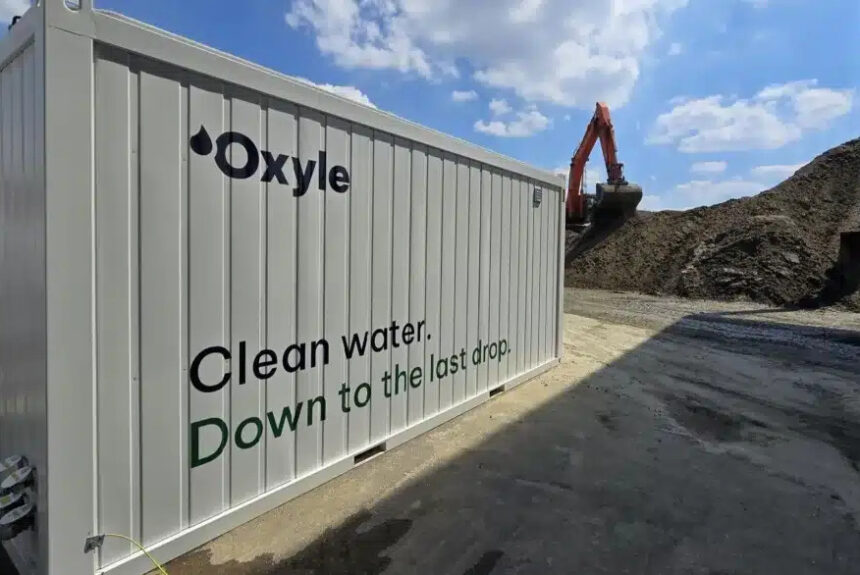Micropollutants in water bodies present a challenge in the fight to keep America’s water clean and drinkable. Of particular concern are per- or poly-fluorinated alkyl substances—otherwise known as PFAS.
PFAS are a class of ‘forever chemicals’ notorious for their near indestructibility in the environment and toxicity to humans. They are found in a wide range of consumer products from non-stick pots and pans to grease-proof food wrappers and water-repellent clothing. Discovered in the late 1930s, PFAS were hailed as a marvel of human engineering at the time due to their remarkable water-, stain-, and grease-resistant properties. Unfortunately, the very physical and chemical properties that make PFAS so convenient in consumer products also make them nearly impossible to destroy.
>>>READ: Say Goodbye to ‘Forever Chemicals’: Meet the Startup Tackling PFAS
As more evidence of the harmful effects of PFAS emerges, governments are gradually advancing legislation to phase out their use. Industry has also embraced standards to ensure safe drinking water and protect the environment, but noted that PFAS are very diverse and a one-size-fits-all regulation could be costly and ineffective. However, innovators are stepping up to provide an effective, scalable solution. In fact, a Swiss startup has reportedly developed a sustainable method to rid forever pollutants from wastewater.
Oxyle, a Zurich-based water treatment company, has created an advanced purification system that effectively eliminates 99% of long-, medium-, and short-chain PFAS to levels below detection, all while consuming 15 times less energy than traditional methods. This groundbreaking solution not only breaks down PFAS into safe, dischargeable compounds but also generates no secondary waste. According to Oxyle, their destruction technology is the most energy- and cost-efficient PFAS treatment solution available on the market.
The technology is based on the concept of nanofiltration, a process that Oxyle co-founder, Dr. Fajer Mushtaq, pioneered as a doctoral student at ETH Zurich.
Unlike conventional methods that rely on electricity or UV light to treat contaminated wastewater, Oxyle uses mechanical energy, such as vibrations from bubbles, to facilitate the chemical reactions that break down PFAS. This process is further enhanced by nanoporous materials developed during Mushtaq’s PhD research. These materials act as invaluable catalysts, significantly accelerating the degradation of PFAS molecules. By breaking down harmful PFAS compounds into less harmful substances—such as CO2, water, fluorides, sulfates, and minerals—these materials play a crucial role in creating safe and manageable byproducts. Their unique structure makes them essential for advanced environmental tech applications.
“We are purely destruction tech; we are oxidizing and reducing these chemicals,” says Mushtaq.
Mushtaq claims that each Oxyle reactor is capable of treating approximately 10,000 liters of water per hour. Additionally, the process is significantly less energy-intensive than other alternative destruction technologies; the use of bubbles cuts the company’s energy consumption by 15% to 60%. As Mushtaq told Euronews, “Energy is the biggest drive for cost of destruction tech,” and therefore makes Oxyle’s process cost-competitive.
>>>READ: Researchers Have Found a Way To Lower the Carbon Footprint of Aquaculture
In a six-month pilot project, Oxyle eliminated 99.2% of PFAS from contaminated groundwater for the Swiss chemical manufacturer CIMO. Oxyle’s advanced catalytic technology also enabled an international agrochemical company to remove over 98% of toxic pesticides from their wastewater.
The company joined forces with Waterleau this May to make good on their vision of achieving PFAS-free waters. Waterleau, a global leader in water and wastewater treatment, boasts an extensive PFAS treatment portfolio, having commissioned initiatives in more than 85 countries. Oxyle’s expertise will ensure that Waterleau has the technical know-how to successfully implement its projects on a global scale.
As global clean water challenges persist throughout the world, eco-innovation is leading the charge against ‘forever chemicals.’
Nathalie Voit is a freelance content creator and a graduate of the University of Florida. She is an alumni of The Heritage Foundation’s Young Leaders Program.
The views and opinions expressed are those of the author’s and do not necessarily reflect the official policy or position of C3.
